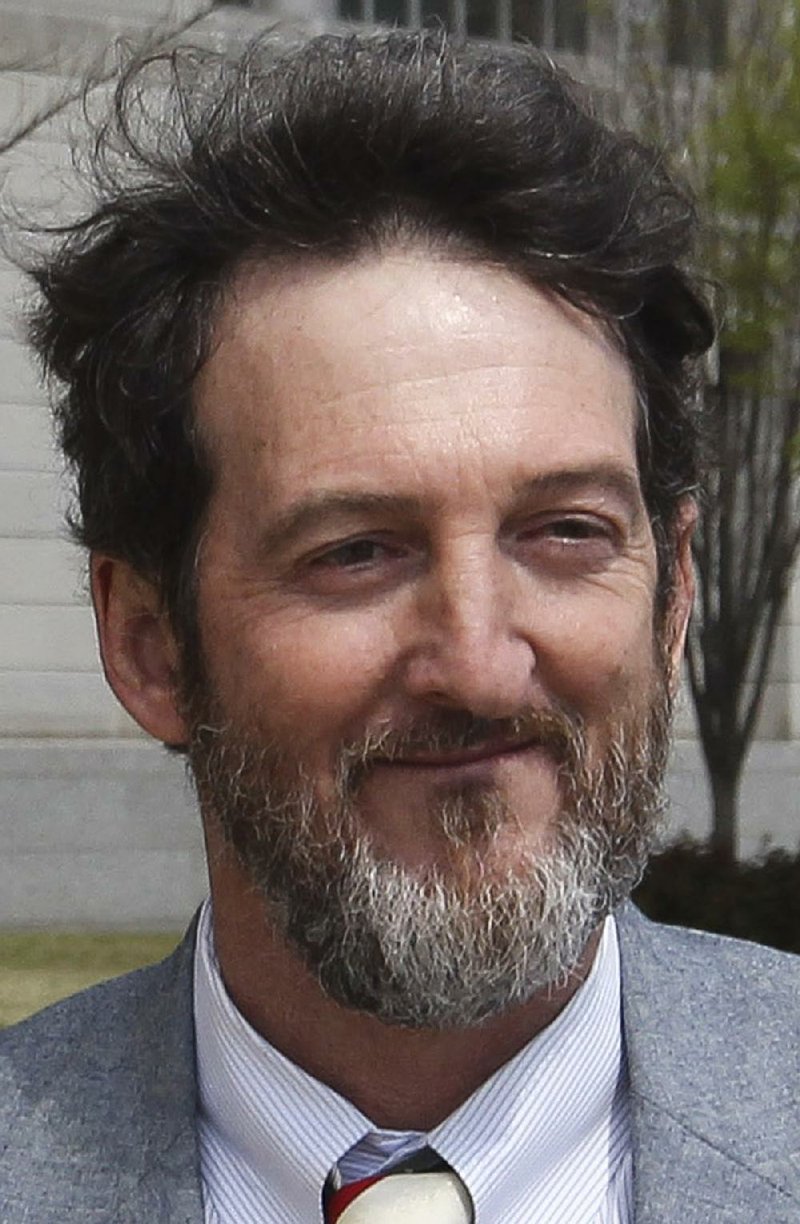A federal appeals court should overturn Michael Maggio's bribery conviction but, if not, at least reduce the former judge's 10-year prison sentence, considering the lighter punishments given to others, including former Arkansas Treasurer Martha Shoffner, Maggio's attorney argued.
"The public is safe: Maggio will never be a judge again, and almost certainly will never be a lawyer again either," attorney John Wesley Hall wrote in a document filed Tuesday with the 8th U.S. Circuit Court of Appeals in St. Louis. "He's a pariah in Arkansas because of the notoriety of this case and the repeated news stories. No non-homicide case in Arkansas has been in the public eye like this one. He can't even get work."
Maggio is free pending the appeal of U.S. District Judge Brian Miller's refusal in March to let Maggio withdraw his guilty plea to a federal bribery charge.
After referring to a Mississippi case involving a lawyer who bribed a judge, Hall wrote, "Even the former Arkansas Treasurer, Martha Shoffner, now Inmate No. 27648-009, convicted of taking bribes to place $2 billion in state investments, resulting in a $1,714,889.35 in commissions only got 30 months in 2015 in this same court after a jury trial."
[DOCUMENT: Click here to read Maggio's reply brief.]
As it stands, Maggio's sentence is unreasonable, Hall argued.
"Clearly, if the conviction stands, Appellant [Maggio] deserves imprisonment, and he admits it. ... But ten years?" Hall wrote.
Hall argued that the federal appeals court should reverse and remand Maggio's conviction because the U.S. attorney's office did not show a connection between Maggio's crime and any federal funds received by the 20th Judicial Circuit, where Maggio was a judge. Only with a connection between the money and the act does the federal government clearly have jurisdiction in the case, Hall said.
Without a connection requirement, the federal bribery act under which Maggio was convicted "invites overcriminalization," Hall wrote.
"If the [federal] money went for drug or juvenile court, it had nothing to do with Appellant's [Maggio's] court and his actions," Hall said.
Hall urged the federal appeals court to take a lesson from the U.S. Supreme Court's ruling earlier this year when it overturned the public-corruption conviction of former Virginia Gov. Bob McDonnell. In that case, the Supreme Court narrowed the definition of what sort of official act can serve as the basis of a federal corruption prosecution.
"The federal interest to prosecute crimes should not be assumed or bootstrapped, and it should be integral to any federal prosecution," Hall said.
In a January 2015 plea agreement, Maggio admitted lowering a Faulkner County jury's $5.2 million judgment in a negligence lawsuit against a Greenbrier nursing home to $1 million in exchange for contributions to his campaign for the state appeals court. More than a year later and shortly before he was scheduled for sentencing, Maggio unsuccessfully tried to withdraw his guilty plea.
The judgment at issue was in a negligence lawsuit filed over the 2008 death of Martha Bull, 76, of Perryville.
Maggio's plea agreement implicated two other people -- the nursing home owner and a political fundraiser who were not identified by name.
Fundraiser and lobbyist Gilbert Baker of Conway and nursing home owner Michael Morton of Fort Smith have denied wrongdoing but have said they believe the government was referring to them in Maggio's plea agreement. They are not charged with a crime.
The federal appeals court is expected to hear oral arguments in the Maggio case.
State Desk on 08/24/2016

